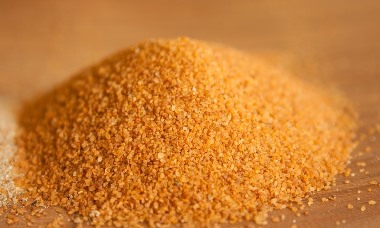Can we help you?
Contact us

Can we help you?
Contact us

Thank you for contacting us
Your form has been submitted successfully Our team will contact you again as soon as possible.
Whooppss...!! An error has occurred
Try sending later or write an email directly to areaempresas@ua.es

 PATENTED TECHNOLOGY
PATENTED TECHNOLOGY
INFO
SHEET
DOWNLOAD
EXECUTIVE
ABSTRACT
CONTACT DETAILS: Research Results Transfer Office-OTRI
University of Alicante
Tel.: +34 96 590 99 59
Email: areaempresas@ua.es
http://innoua.ua.es
The research group Carbon Materials and Environment which belongs to the Inorganic Chemistry Department and the University Materials Institute of the University of Alicante has developed a procedure to prepare silica fillings preventing their shrinkage by the deposition of a thin film prior to the synthesis of the filling. Modifying the said thin film (microporous or mesoporous) the filling properties are modified, obtaining highly satisfactory results in the case of the mesoporous thin films in all case studies (different supports). This method also allows obtaining silica fillings with different diameters and their incorporation into different types of supports such as glass, steel or honeycombing cordierite monoliths.
Silica fillings are nowadays employed in applications as for example stationary phase in chromatography columns, support for the immobilization of bioactive molecules, catalysts and/or catalyst supports, polymer fillers, etc. Following this procedure the shrinkage of the fillings is avoided, which is a common occurrence with the established preparation protocols.

From the first synthesis of a mesoporous silica in 1991, the interest in this solid has grown steadily, as well as the number of applications in which it could implemented. Mesoporous silica is an inorganic compound based on silicon oxide which, due to the synthesis conditions in which it has been prepared, presents a type of porosity centered in the mesopore range (pore size between 2 and 50 nm).
The development consist on a procedure for the preparation of silica fillings with meso- and/or macroporous structure (hierarchical structure) in the inner volume of different supports made up of different materials and with different inner diameters completely avoiding the shrinkage of the silica, which is divided into the following steps:
The employed supports for the filling with hierarchical silica are, a) honeycomb cordierite monoliths, b) glass tubes, c) stainless steel tubing, and d) fused silica capillaries. All the materials present a wide range of compositions (cordierite, glass, fused silica, and steel) and a wide range on internal channel diameter (between 0.25 and 7.28 mm).
 Figure 1. Selected materials, from left to right: Fused silica capillary (i.d. 0.25 mm), stainless steel tubing (i.d. 1.6 mm), glass tube (i.d. 7.6 mm), and multichannel cordierite monolith (i.d.channel 1.2 mm).
Figure 1. Selected materials, from left to right: Fused silica capillary (i.d. 0.25 mm), stainless steel tubing (i.d. 1.6 mm), glass tube (i.d. 7.6 mm), and multichannel cordierite monolith (i.d.channel 1.2 mm).MAIN ADVANTAGES OF THE TECHNOLOGY
Previous deposition of a thin film allows:
- Avoiding shrinkage, thus reducing the detachment of the monolith provoked by this effect.
- Increasing the adherence of the monolith to the employed support walls.
- Process can be applied to different supporting materials.
INNOVATIVE ASPECTS OF THE TECHNOLOGY
- Method based on sol-gel methodologies, modified to overcome shrinkage and detachment phenomena.
- Use of simple silica precursors which are furthermore common to all supports.
- Use of environmentally sustainable chemicals.
- Extractions with organic solvents are avoided.
- Supports with inner diameters larger than those found in the literature.
- Superior mechanical stability of the prepared filling.
- Development of standard or HPLC columns.
- Production of catalytic reactors and microreactors.
• Publication number: ES2554052B2
Chemical Technology
Carretera San Vicente del Raspeig s/n - 03690 San Vicente del Raspeig - Alicante
Tel.: (+34) 965 90 9959




